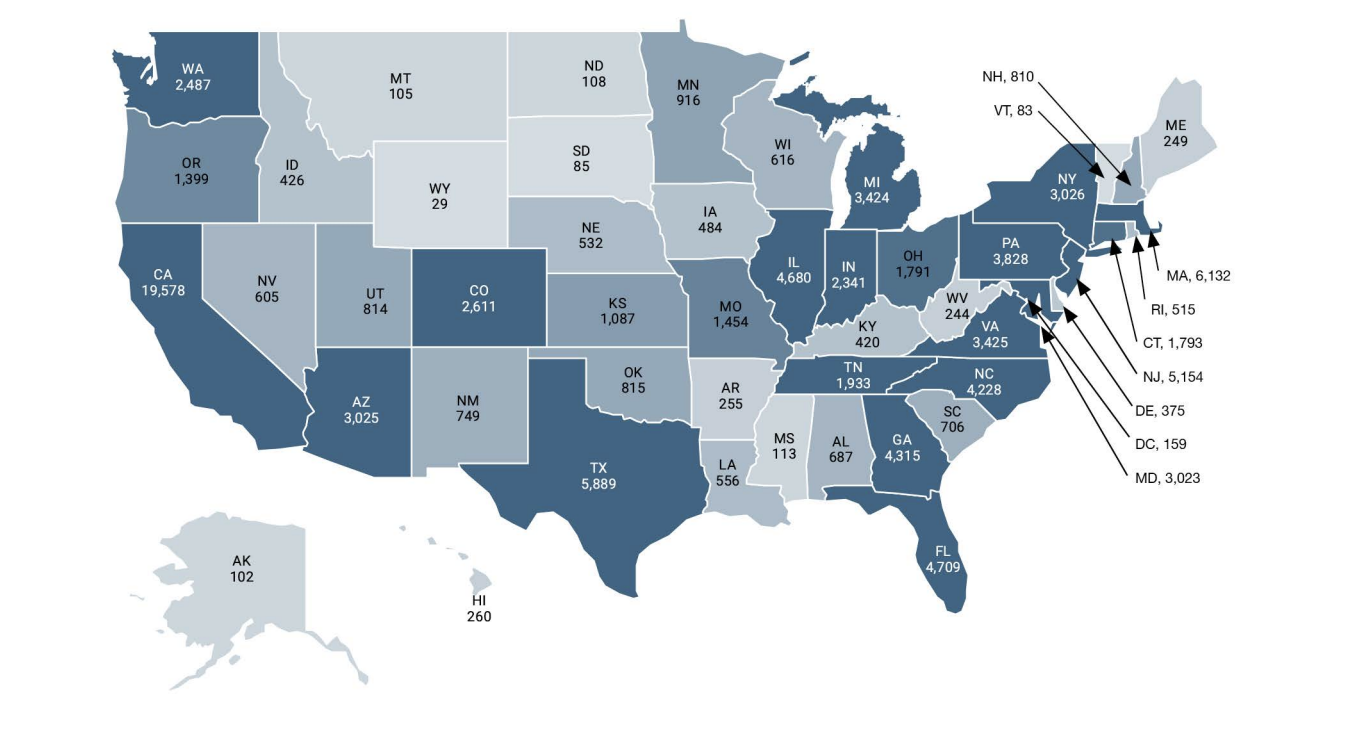BCBA® vs. BCaBA®: Understanding the Differences and Opportunities in Behavior Analysis

As a Board Certified Behavior Analyst (BCBA®) with over 13 years of experience, I've often been asked about the differences between a BCBA® and a Board Certified Assistant Behavior Analyst (BCaBA®). In fact, I was certified as a BCaBA® prior to becoming a BCBA® myself, so I have quite literally experienced both roles in the field of behavior analysis. The distinctions between these two roles are significant and can impact one's career path, responsibilities, and opportunities in the field of behavior analysis.
BCBA® vs. BCaBA®: What’s Different Between the Two?
In essence, a BCBA® is a graduate-level certification in behavior analysis. Professionals who are certified at this level are independent practitioners who provide behavior-analytic services. On the other hand, a BCaBA® is an undergraduate-level certification in behavior analysis. Professionals certified at this level provide similar services as BCBA®s under their supervision.
What Can You do as a BCBA® vs. a BCaBA®?
So, what can you do as a BCBA® vs. a BCaBA®? As a BCBA®, you have the autonomy to practice independently, providing services such as behavior assessment, analysis, and behavior change programs. You can work in various settings, including schools, homes, and businesses, and you can supervise the work of BCaBA®s, Registered Behavior Technicians (RBT®s), and other professionals implementing behavior-analytic interventions.
As a BCaBA®, you can also provide behavior-analytic services, but you must be supervised by someone certified at the BCBA®/BCBA-D® level. This means that while you can assist in the design and implementation of behavior-analytic interventions, you cannot practice independently. I completed my BCaBA prior to starting my graduate training in behavior analysis, this allowed me to not only have some autonomy and responsibility in my day-to-day work, but also provided me with an increased salary range for putting myself through graduate school. So what are the salaries like?
Salary Differences Between a BCBA® and a BCaBA®
When it comes to salary differences between a BCBA® and a BCaBA®, the level of responsibility and autonomy in the role plays a significant part.
According to the 2022 BACB® Certificant Data report, BCBA®s tend to earn more than BCaBAs due to their higher level of certification and the ability to practice independently. According to the BACB's 2022 salary survey, BCBA®s earn a median salary of $70,000, while BCaBA®s earn a median salary of $50,000 (Behavior Analyst Certification Board, 2022). However, the exact salary can vary depending on factors such as geographic location, years of experience, and the specific setting in which one works.
If you scour posts for positions online, you often see sign-on bonuses or other incentives that look enticing, but typically reflect things like the cost of living differences between the various states, so be cautious in your thinking and adjust for the cost of living when assessing different opportunities you may be considering.
What’s the Demand For a BCBA® vs. a BCaBA®?
What is the current demand for hiring a BCBA® in each state?
According to the Behavior Analyst Certification Board (BACB)'s most recent publication with Lightcast, the demand for behavior analysts is at an all-time high. Since 2010, the need for BCBA® and BCBA-D® (doctoral level) certified professionals has grown yearly, with a 58% jump from 2023 to 2024 alone. Below is a heatmap showing areas of the highest hiring demand, with needs seen increasing in all 50 states.

Source: Behavior Analyst Certification Board. (2025). US employment demand for behavior analysts: 2010–2024
It cannot be understated just how quickly the field is growing when you look at the demand across the past 15 years:

Source: Behavior Analyst Certification Board. (2025). US employment demand for behavior analysts: 2010–2024
Additionally, the demand for BCaBA®s has grown almost every year since 2010, with a massive 131% increase from 2023 to 2024. Below is a heatmap showing areas of the highest hiring demand, with needs seen increasing in all 50 states.

Source: Behavior Analyst Certification Board. (2025). US employment demand for behavior analysts: 2010–2024
Similar to the rapid demand being seen for BCBA®s, the BCaBA®s demand is increasing at unbelievable rates:

Source: Behavior Analyst Certification Board. (2025). US employment demand for behavior analysts: 2010–2024
In conclusion, whether you choose to pursue a career as a BCBA® or a BCaBA® depends on your career goals, educational background, and the level of responsibility you wish to have in your professional practice. Both roles play a crucial part in delivering behavior-analytic services and improving the lives of individuals.
Remember, becoming a BCBA® or a BCaBA® requires a commitment to learning and professional development. If you're wondering how to become a BCBA® or a BCaBA®, I recommend reviewing the resources available on the BACB® website, including the BCBA® and BCaBA® handbooks, which provide detailed information on the requirements for each certification.
References:
Behavior Analyst Certification Board. (2022). BCBA® and BCaBA® Role Delineation. Retrieved from BCBA® Handbook and BCaBA® Handbook
Behavior Analyst Certification Board®. (2023). US Employment Demand for Behavior Analysts: 2010–2022. Retrieved from US Employment Demand for Behavior Analysts
Behavior Analyst Certification Board. (2025). US employment demand for behavior analysts: 2010–2024.
About the Author:
Ryan O’Donnell, MS, BCBA is a Board Certified Behavior Analyst (BCBA) with over 12 years of experience in the field. He has dedicated his career to helping individuals improve their lives through behavior analysis and are passionate about sharing their knowledge and expertise with others. He oversees The Behavior Academy and helps top ABA professionals create video-based content in the form of films, online courses, and in-person training events. He is committed to providing accurate, up-to-date information about the field of behavior analysis and the various career paths within it.

